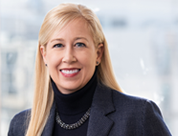Board Oversight in the Age of COVID-19: Part Two
Part Two of a weekly series detailing approaches that Independent Board Members are utilizing to address coronavirus-related matters and highlighting emerging issues. Part One may be accessed here. Please visit our Coronavirus Task Force page for more information.
We are now a few weeks into self-isolation and social distancing. Kinks in the implementation of working remotely have been worked out (mostly) and now fund companies are resuming business-as-usual activities while, of course, monitoring for market events that may require immediate attention. Fund boards are working on a routine that ensures the board will remain informed of important developments. We have been working with our clients as they implement these added protocols.
What are Boards Doing Now?
Board Communications. Boards are arranging for periodic updates from fund management to track matters impacting funds overseen. We see diversity in how boards are approaching these updates. But whether the updates are by teleconference or written communication, the key is that boards find an effective way to keep informed and provide oversight of the challenges facing their particular funds.
- Timing: Some boards are scheduling periodic updates every one to two weeks for the next few months; others are receiving a weekly email; still others are setting the expectation with fund management that updates should occur periodically (we typically see every 10 days or so), but should occur sooner as events warrant.
- Format: Many boards are receiving these updates through a teleconference, particularly if there are concerns about valuation or liquidity for particular funds overseen. Some boards have found a written communication process to be effective, with the option to have a teleconference should the need arise.
- Content: For these updates, some boards establish a regular agenda to be addressed, including updates from portfolio management, fund operations (liquidity, valuation, etc.), distribution, oversight of third-party service providers, compliance and adviser-related matters. Others are looking to fund management to highlight those matters that are most urgent. For those boards holding teleconferences, we generally are not seeing written materials being provided, to allow fund management to focus on matters at hand and provide the most up-to-date information. Whether boards hold teleconferences or get written updates, it is important to provide an avenue for the questions of board members to be addressed.
- Participants: For teleconference updates, some boards are limiting the fund management participants to a few key persons (the CIO, Fund Treasurer, CCO and Chief Legal Officer); others also include more of those who regularly present at meetings, to allow deeper dives into operational matters. Fixed Income, Energy and Healthcare PMs and/or analysts are also popular invitees.
- Minutes/Board Fees: To date, practice has varied as to whether these periodic update sessions are treated as formal board meetings, whether minutes are kept, and whether board fees are paid for participation (for those boards that pay per meeting fees outside of a retainer).
Future Board Meetings. Now that the February/March meeting cycle has passed for many boards, attention is turning to May/June meetings, noting that the SEC has extended the relief to allow telephonic instead of in-person meetings to August 15, 2020.
Audit/Valuation Committee Communications. Chairs or full committees are checking in with fund accounting and the auditors for updates on valuation and any challenges that may have surfaced. The committee chairs are evaluating the appropriate frequency of further communications.
What’s Next – Emerging Issues
Below are some emerging issues for board consideration of their potential impact to funds overseen.
Bond ETFs. What will the impact be of the Federal Reserve’s plan to support bond ETFs? The details of this plan are still being written so we will continue to monitor for impacts. Liquidity in the more challenging parts of the fixed-income markets has improved, but widened ETF spreads persist.
Compliance with Names Rule. Some fund CCOs have reported violations of the 80% requirement of the Names Rule as a result of market volatility and outflows. Prospectus disclosure is being reviewed for flexibility under unanticipated circumstances.
Closed-End Funds. Based on recent SEC guidance on the conduct of annual shareholder meetings under the federal proxy rules, boards of closed-end funds may be asked to approve changes to the date, time or location of meetings or consider the possibility of virtual shareholder meetings, which may be limited by state law or the issuer’s governing documents and may require amendments to governing documents. Please click here for more information.
ETF Rebalancing. Index providers are in some cases delaying rebalancing dates, in which case funds have added disclosures notifying shareholders of this decision. Further, to the extent an index no longer meets the IRS diversification requirements, funds that track the index may experience a wider tracking error as they adjust holdings to ensure they remain diversified.
Daily Pricing. The time needed to produce and distribute daily fund net asset values is extending, but intermediaries and other recipients have been understanding thus far.
Fair Value Pricing. For funds using fair value pricing models to re-price foreign holdings after major moves in the U.S. markets, these models do not re-price non-U.S. futures on foreign indexes, which some funds may be using to hedge exposures.
Pricing Vendors. Given the volatility in the trading markets, some fund complexes have increased their monitoring of evaluated prices provided by pricing vendors.
Key Employee Illness. What is the impact of a key employee becoming ill with the virus? All fund managers should evaluate their teams for redundancy and consider the possibility that more than one employee may be ill at the same time.
Liquidity Issues – Loans from Affiliates. The SEC has issued temporary relief to permit open-end funds (other than money market funds) and insurance company separate accounts to seek collateralized loans from affiliates in order to meet redemptions. Before such borrowing, boards would be required to reasonably determine that such borrowing is in the best interest of shareholders and that the purpose is for satisfying redemptions. The SEC Order provides additional relief relaxing or permitting interfund lending by fund complexes that currently rely on an interfund lending order and those that do not. In each case, the complex must meet specified conditions and boards must make certain findings. The intent to rely on the SEC Order to change the terms of an existing order or to engage in interfund lending anew must be disclosed on the fund’s website and prospectus disclosure may need to be updated. Finally, the SEC Order provides that funds may borrow or lend notwithstanding fundamental policies that could only be changed by shareholder vote, without seeking prior shareholder approval. Before relying on the SEC Order for any purpose, a fund or separate account must provide email notice to the SEC. Please click here for more information.
Liquidity Issues – Delaying Distributions. One option for funds facing liquidity concerns is to consider delaying distributions so that, rather than paying distributions on a monthly or quarterly basis, the fund makes its distributions on an annual basis. A fund may also consider making a distribution that provides for a cash or stock election, which will be treated as a dividend for income and excise tax purposes. Consideration of prior board resolutions declaring dividends and applicable state law is needed to assess whether this flexibility is available. Please click here for more information.
If you have any questions regarding the topics discussed in this article, please contact Marguerite C. Bateman at +1 (202) 312 3033, Kimberly Karcewski Vargo at +1 (202) 312 3385, Cathy Gonzales O’Kelly at +1 (312) 609 7657, Bruce A. Rosenblum at +1 (202) 312 3379, or any Vedder Price attorney with whom you have worked.
Vedder Thinking | Articles Board Oversight in the Age of COVID-19: Part Two
Newsletter
March 31, 2020
Part Two of a weekly series detailing approaches that Independent Board Members are utilizing to address coronavirus-related matters and highlighting emerging issues. Part One may be accessed here. Please visit our Coronavirus Task Force page for more information.
We are now a few weeks into self-isolation and social distancing. Kinks in the implementation of working remotely have been worked out (mostly) and now fund companies are resuming business-as-usual activities while, of course, monitoring for market events that may require immediate attention. Fund boards are working on a routine that ensures the board will remain informed of important developments. We have been working with our clients as they implement these added protocols.
What are Boards Doing Now?
Board Communications. Boards are arranging for periodic updates from fund management to track matters impacting funds overseen. We see diversity in how boards are approaching these updates. But whether the updates are by teleconference or written communication, the key is that boards find an effective way to keep informed and provide oversight of the challenges facing their particular funds.
- Timing: Some boards are scheduling periodic updates every one to two weeks for the next few months; others are receiving a weekly email; still others are setting the expectation with fund management that updates should occur periodically (we typically see every 10 days or so), but should occur sooner as events warrant.
- Format: Many boards are receiving these updates through a teleconference, particularly if there are concerns about valuation or liquidity for particular funds overseen. Some boards have found a written communication process to be effective, with the option to have a teleconference should the need arise.
- Content: For these updates, some boards establish a regular agenda to be addressed, including updates from portfolio management, fund operations (liquidity, valuation, etc.), distribution, oversight of third-party service providers, compliance and adviser-related matters. Others are looking to fund management to highlight those matters that are most urgent. For those boards holding teleconferences, we generally are not seeing written materials being provided, to allow fund management to focus on matters at hand and provide the most up-to-date information. Whether boards hold teleconferences or get written updates, it is important to provide an avenue for the questions of board members to be addressed.
- Participants: For teleconference updates, some boards are limiting the fund management participants to a few key persons (the CIO, Fund Treasurer, CCO and Chief Legal Officer); others also include more of those who regularly present at meetings, to allow deeper dives into operational matters. Fixed Income, Energy and Healthcare PMs and/or analysts are also popular invitees.
- Minutes/Board Fees: To date, practice has varied as to whether these periodic update sessions are treated as formal board meetings, whether minutes are kept, and whether board fees are paid for participation (for those boards that pay per meeting fees outside of a retainer).
Future Board Meetings. Now that the February/March meeting cycle has passed for many boards, attention is turning to May/June meetings, noting that the SEC has extended the relief to allow telephonic instead of in-person meetings to August 15, 2020.
Audit/Valuation Committee Communications. Chairs or full committees are checking in with fund accounting and the auditors for updates on valuation and any challenges that may have surfaced. The committee chairs are evaluating the appropriate frequency of further communications.
What’s Next – Emerging Issues
Below are some emerging issues for board consideration of their potential impact to funds overseen.
Bond ETFs. What will the impact be of the Federal Reserve’s plan to support bond ETFs? The details of this plan are still being written so we will continue to monitor for impacts. Liquidity in the more challenging parts of the fixed-income markets has improved, but widened ETF spreads persist.
Compliance with Names Rule. Some fund CCOs have reported violations of the 80% requirement of the Names Rule as a result of market volatility and outflows. Prospectus disclosure is being reviewed for flexibility under unanticipated circumstances.
Closed-End Funds. Based on recent SEC guidance on the conduct of annual shareholder meetings under the federal proxy rules, boards of closed-end funds may be asked to approve changes to the date, time or location of meetings or consider the possibility of virtual shareholder meetings, which may be limited by state law or the issuer’s governing documents and may require amendments to governing documents. Please click here for more information.
ETF Rebalancing. Index providers are in some cases delaying rebalancing dates, in which case funds have added disclosures notifying shareholders of this decision. Further, to the extent an index no longer meets the IRS diversification requirements, funds that track the index may experience a wider tracking error as they adjust holdings to ensure they remain diversified.
Daily Pricing. The time needed to produce and distribute daily fund net asset values is extending, but intermediaries and other recipients have been understanding thus far.
Fair Value Pricing. For funds using fair value pricing models to re-price foreign holdings after major moves in the U.S. markets, these models do not re-price non-U.S. futures on foreign indexes, which some funds may be using to hedge exposures.
Pricing Vendors. Given the volatility in the trading markets, some fund complexes have increased their monitoring of evaluated prices provided by pricing vendors.
Key Employee Illness. What is the impact of a key employee becoming ill with the virus? All fund managers should evaluate their teams for redundancy and consider the possibility that more than one employee may be ill at the same time.
Liquidity Issues – Loans from Affiliates. The SEC has issued temporary relief to permit open-end funds (other than money market funds) and insurance company separate accounts to seek collateralized loans from affiliates in order to meet redemptions. Before such borrowing, boards would be required to reasonably determine that such borrowing is in the best interest of shareholders and that the purpose is for satisfying redemptions. The SEC Order provides additional relief relaxing or permitting interfund lending by fund complexes that currently rely on an interfund lending order and those that do not. In each case, the complex must meet specified conditions and boards must make certain findings. The intent to rely on the SEC Order to change the terms of an existing order or to engage in interfund lending anew must be disclosed on the fund’s website and prospectus disclosure may need to be updated. Finally, the SEC Order provides that funds may borrow or lend notwithstanding fundamental policies that could only be changed by shareholder vote, without seeking prior shareholder approval. Before relying on the SEC Order for any purpose, a fund or separate account must provide email notice to the SEC. Please click here for more information.
Liquidity Issues – Delaying Distributions. One option for funds facing liquidity concerns is to consider delaying distributions so that, rather than paying distributions on a monthly or quarterly basis, the fund makes its distributions on an annual basis. A fund may also consider making a distribution that provides for a cash or stock election, which will be treated as a dividend for income and excise tax purposes. Consideration of prior board resolutions declaring dividends and applicable state law is needed to assess whether this flexibility is available. Please click here for more information.
If you have any questions regarding the topics discussed in this article, please contact Marguerite C. Bateman at +1 (202) 312 3033, Kimberly Karcewski Vargo at +1 (202) 312 3385, Cathy Gonzales O’Kelly at +1 (312) 609 7657, Bruce A. Rosenblum at +1 (202) 312 3379, or any Vedder Price attorney with whom you have worked.
Professionals
-
Vedder Thinking
-
March 23, 2020 | Newsletter
-
April 7, 2020 | Newsletter
-
April 13, 2020 | Newsletter
-
April 20, 2020 | Newsletter
-
April 27, 2020 | Newsletter
-


